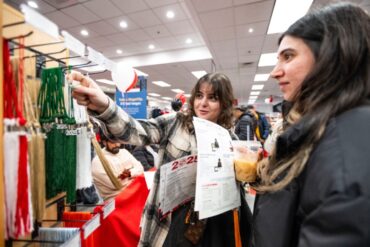Media Contact: Carmen Ramos Chandler, carmen.chandler@csun.edu, (818) 677-2130
When two massive earthquakes (magnitudes 7.7 and 7.6) devastated southern and central Turkey in February 2023, they did more than destroy towns and villages — they brought communities together in unexpected solidarity.
An international research team, including Claire White, professor of religious studies at California State University, Northridge, seized this critical moment to explore how shared suffering fosters profound social connections, even between strangers from different backgrounds.
Their research, published in Nature Scientific Reports under the title “Shared suffering predicts prosocial commitment among Turkish earthquake survivors,” revealed that experiencing intense hardship together, such as natural disasters, significantly increases “identity fusion,” a strong form of psychological bonding motivating individuals to support each other as if they were family.
“These findings suggest that governments and humanitarian organizations could better leverage the social bonds formed during disasters to improve relief efforts and community resilience,” said White, who teaches in the College of Humanities.
White and her colleagues — including Sevgi Demiroglu, a doctoral candidate from the University of Connecticut’s Department of Anthropology; Dimitris Xygalatas, head of the Experimental Anthropology Lab at the University of Connecticut; Danielle Morales, CSUN sociology graduate student; Andrew Ainsworth, CSUN psychology professor; and Harvey Whitehouse from Oxford University’s School of Anthropology — conducted surveys on-site with 120 survivors in heavily impacted regions.
“Remarkably, survivors expressed a willingness to assist complete strangers as strongly as they would help their own families,” noted Demiroglu, the study’s lead researcher. This finding challenged prevailing narratives suggesting severe tensions between Turks and Syrian refugees.
White emphasized the importance of collecting real-time, on-the-ground data directly from disaster survivors, rather than relying exclusively on laboratory studies that often involve university students in controlled environments.
“So much existing research is based on data gathered from undergraduate psychology students in what researchers have termed ‘WEIRD’ societies — White, Educated, Industrialized, Rich, Democratic,” White said. “This limits our understanding of how people genuinely cope and cooperate during actual crises.”
The research also highlighted voices frequently overlooked by media and governmental agencies. Demiroglu, who is from Turkey, described profound conversations with survivors, who were eager to share their experiences.
“Many told us how grateful they were simply to have someone listen to them. We discovered people actively supporting each other, demonstrating resilience and cooperation despite tremendous adversity,” Demiroglu said.
White believes this research can help refine emergency responses worldwide.
“We’re providing essential insights into how real-world suffering shapes human behavior and cooperation,” White said. “These lessons are vital for preparing aid agencies to better respond when disaster inevitably strikes again.”




Comments are closed.